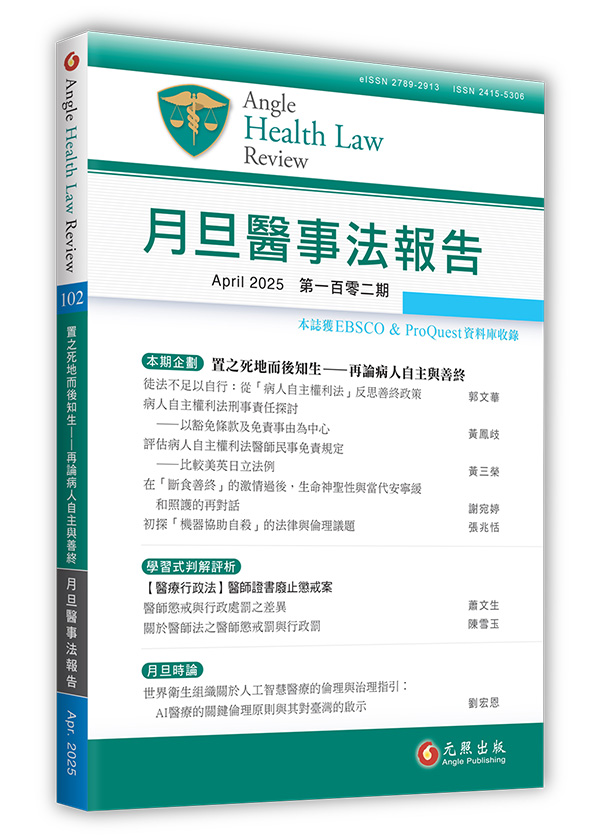在醫療與法律間的「斷食善終」【醫法新論】 試閱
Discussion on “Stopping Eating and Drinking for a Good Death” Between Medicine and Law
臺灣在2025年邁入超高齡社會,65歲以上之人口占比預計超過20%,即超過五分之一人口適用老人福利法。隨著「活得久」的人口日增,最大挑戰便是「活得好」,除了需有高齡友善等正向支持體系外,也必須面對「如何好死」的現實需求。本文藉由現有文獻,歸納界定臺灣社會傳述之「斷食善終」,討論其所涉及之法律概念與內涵,在安寧緩和醫療條例與病人自主權利法之規範下,參考實務案例,探討不同「斷食善終」態樣產生之法律效果。在尊嚴生與尊嚴死的具體實踐與法律規範上,指出醫療、法律及其他相關專業者須共同面對因應之方向。
In 2025, Taiwan become a super-aged society, with the population aged 65, older expected to exceed 20%, meaning that more than one-fifth of the population will be covered by the Senior Citizens Welfare Act. As more people “live longer,” the greatest challenge is ensuring they “live well.” Beyond establishing age-friendly support systems, society must also confront the need for a “good death.” This paper synthesizes existing literature to define the concept of “Stop eating and drinking for good death” as understood in Taiwanese society and examines its legal implications. Under the frameworks of the Hospice Palliative Care Act and the Patient Right to Autonomy Act, this study analyzes the legal effects of different forms of “Stop eating and drinking for good death” through practical case studies. In addressing the concrete practice and legal regulation of dignified living and dying, this paper emphasizes the need for collaboration among medical, legal, and other relevant professionals.
135-155






